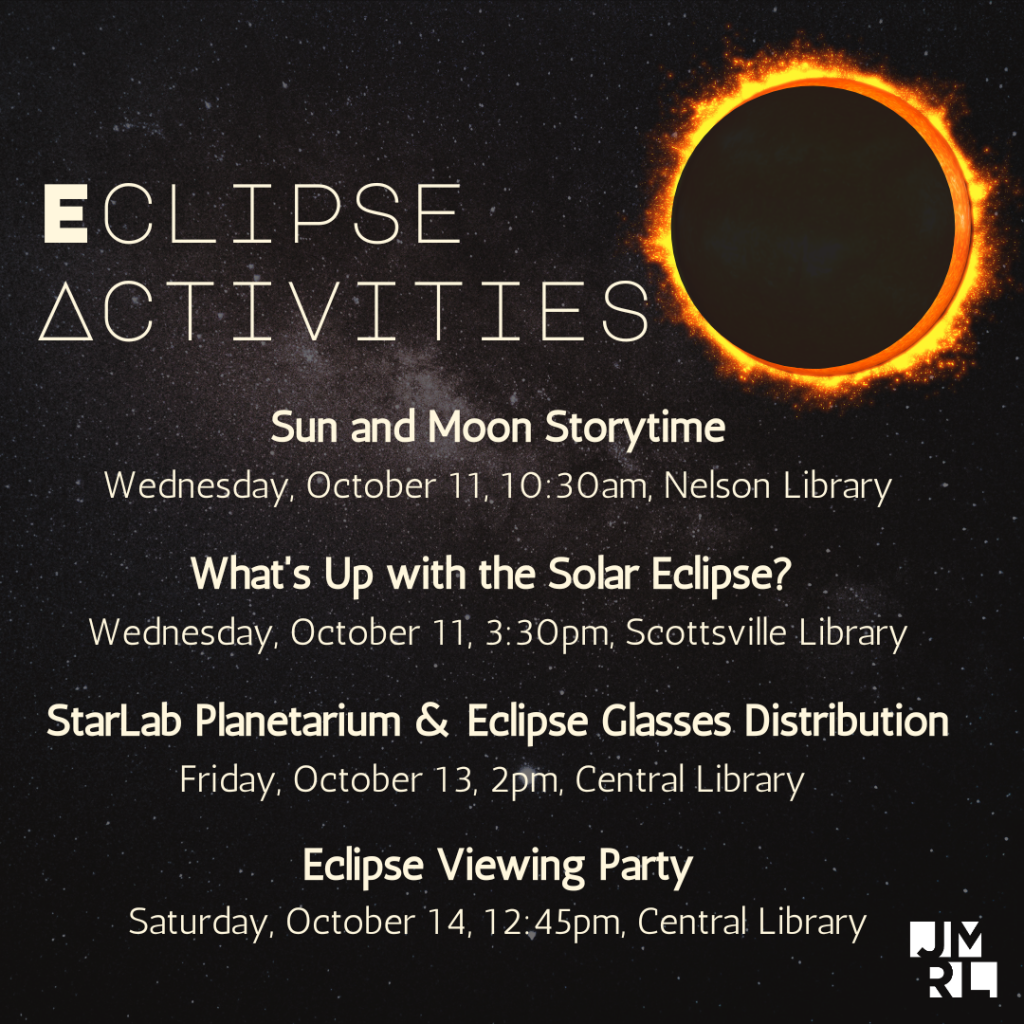
Remember the solar eclipse of 2017? Get ready for not one but two more, occurring in the next 6 months over different parts of North America!
The first one is a partial annular eclipse on Saturday, October 14. You can find out more about this fascinating phenomenon at several programs taking place this week at JMRL. Check them out on the JMRL calendar.
Featured programs include a storytime at 10:30 am on Wednesday, Oct. 11 at the Nelson Memorial Library, later that afternoon, at 3:30, a presentation by the Charlottesville Astronomical Society at the Scottsville Library; and, on Friday, Oct. 13, a chance to see the StarLab planetarium, brought to you by the Virginia Discovery Museum, from 2:00-4:30 pm at Central Library. Then, on October 14, stop by Central Library for an eclipse viewing event at 12:45 pm, including an activity and a short video showing.
Eclipse viewing glasses will be available for attendees at each eclipse event. And you can save them to use at the total eclipse on April 8, 2024! Please note that glasses will be distributed to participants only during the events.
Need more information about the eclipse while you’re getting ready for the 14th? Check out some eclipse-related fiction and nonfiction in the JMRL catalog.
Further information is available from these resources:
- Space Science Institute’s scigames.org page: https://www.scigames.org/eclipse/
- American Astronomical Society website on safe eclipse viewing: https://eclipse.aas.org/eye-safety
- Exploratorium – science museum, San Francisco, CA: https://www.exploratorium.edu/eclipse/how-to-view-eclipse
- Eclipse.2024.org – eclipse viewing instructions in multiple languages: https://eclipse2024.org/instructions/languages.html
Eclipse programs have been planned as part of the SEAL program (Solar Eclipse Activities for Libraries) through the STAR Library Network. This project is funded by the Gordon and Betty Moore Foundation through Grant Agreement 10756 to the Space Science Institute. Any opinions, findings, and conclusions or recommendations expressed in this material are those of the author(s) and do not necessarily reflect the views of the Gordon and Betty Moore Foundation.